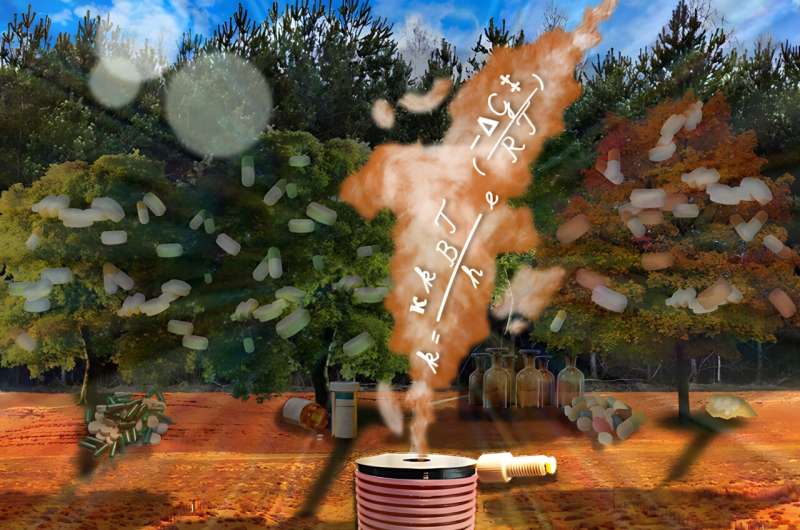This article has been reviewed according to Science X's editorial process and policies. Editors have highlighted the following attributes while ensuring the content's credibility:
fact-checked
peer-reviewed publication
trusted source
proofread
New opportunities for organic synthesis under superheated flow conditions

Research programs from the Center for Integrated Technology and Organic Synthesis of the University of Liège (Belgium), demonstrate the many opportunities offered by micro/mesofluidic technologies to explore new reaction spaces.
By leveraging the compression of the spatiotemporal framework of processes through the unique properties of micro/mesofluidic technologies, the horizons of increased productivity and discovery of new reaction pathways are expanding. This guide is now published and accessible in the journal Accounts of Chemical Research.
Continuous flow technology and micro/mesofluidic reactors show great promise for reshaping traditional routes toward chemical manufacturing but still face challenges. Flow technology operates within a very different space- and timeframe compared to conventional process technologies.
As discussed in a previous article, the timeframe for a reaction is a critical parameter to ensure viable flow processes at large scale. While batch processes comfortably accommodate slow reactions over extended timeframes (minutes to days), flow reactors are typically designed for much shorter reaction times (ideally less than one minute, but can reasonably handle reactions up to about 15 minutes to maintain economic viability at production scales).
This constraint is significant, as many reactions require longer timeframes to reach completion. This is often seen as one of the main hurdles toward the more widespread adoption of flow technology. For example, a second-order reaction (1 M) in water with an activation enthalpy of 9.8 kcal mol-1 and an activation entropy of -0.0456 kcal mol-1 requires 5 days to reach completion (>99% conversion) at room temperature.
At reflux (100 °C), the reaction rate increases 35-fold, yet it still takes over 3 hours to reach completion, making it unsuitable for flow technology. Batch processes typically operate within the solvent's boiling point. This drastically limits the reaction temperature window and requires solvent changes to achieve higher temperatures, which introduces additional drawbacks. Solvent choices become restricted to boiling points, often compromising reaction compatibility, solubility, selectivity, cost, and toxicity.
"Superheated flow technology leverages the advantages of flow processes by operating above solvent boiling points to enhance reaction rates, improving productivity and safety, and aligning with sustainability goals," explains Jean-Christophe Monbaliu, head of the CiTOS Lab. "Returning to our example, the same reaction under superheated conditions at 200 °C in water would see a 713-fold acceleration, potentially reaching completion within 10 minutes."
Like a wizard, superheated conditions defy common wisdom, compressing both time- and spaceframes within processes and making slow reactions amenable to flow technology.
Despite its significant benefits, accessing superheated flow conditions is complex and resource-intensive, especially for newcomers. In this account, we provide a concise overview of superheated flow chemistry, including key concepts, reactor options, and strategic adoption methods using Design of Experiments, microwave test chemistry, kinetics data, and Quantum Mechanics.
"Our goal is to guide the exploration of extended chemical spaces and accelerate organic synthesis," concludes Monbaliu. "We also highlight recent examples from our lab and other leading contributors worldwide."
More information: Pauline Bianchi et al, New Opportunities for Organic Synthesis with Superheated Flow Chemistry, Accounts of Chemical Research (2024). DOI: 10.1021/acs.accounts.4c00340
Journal information: Accounts of Chemical Research
Provided by University de Liege





















